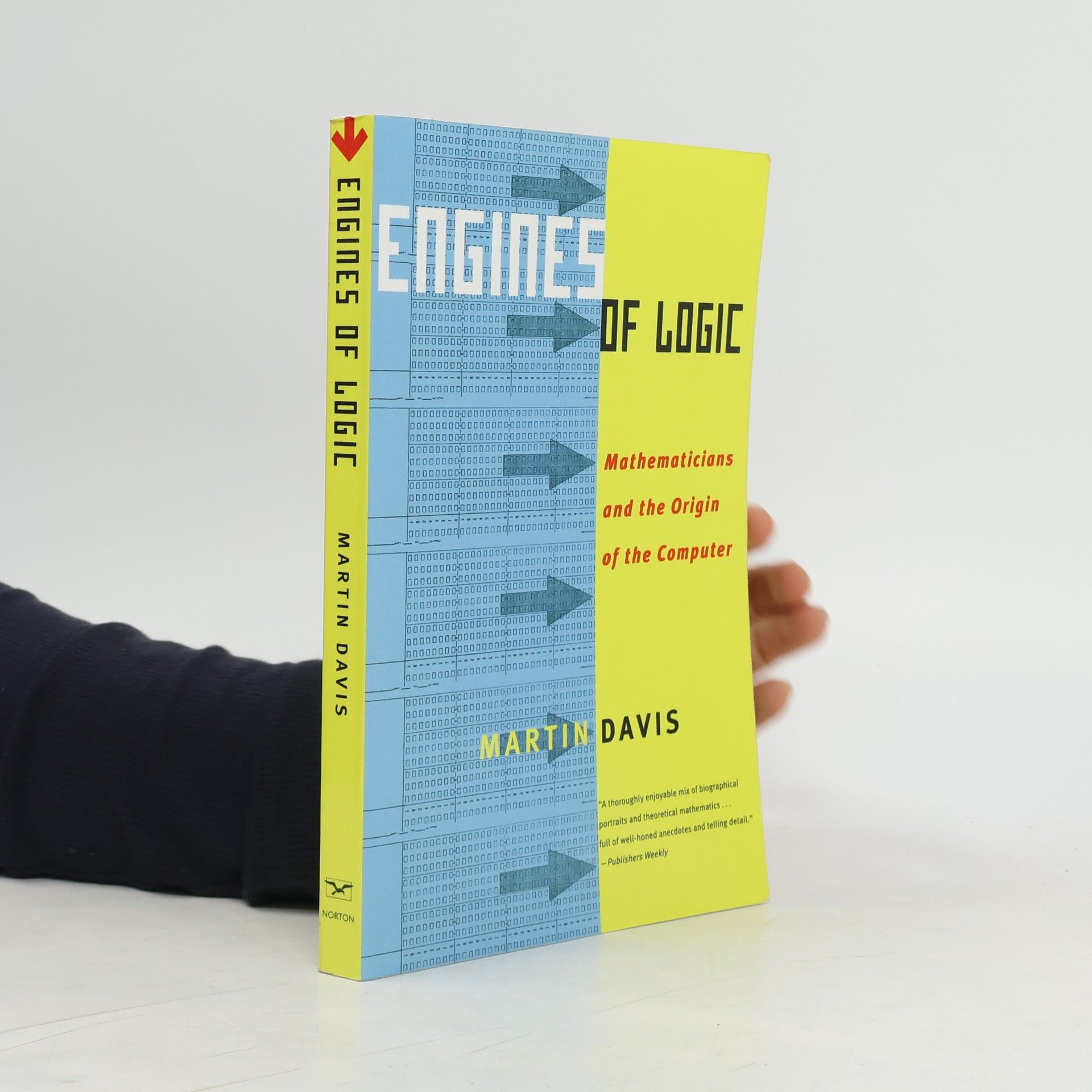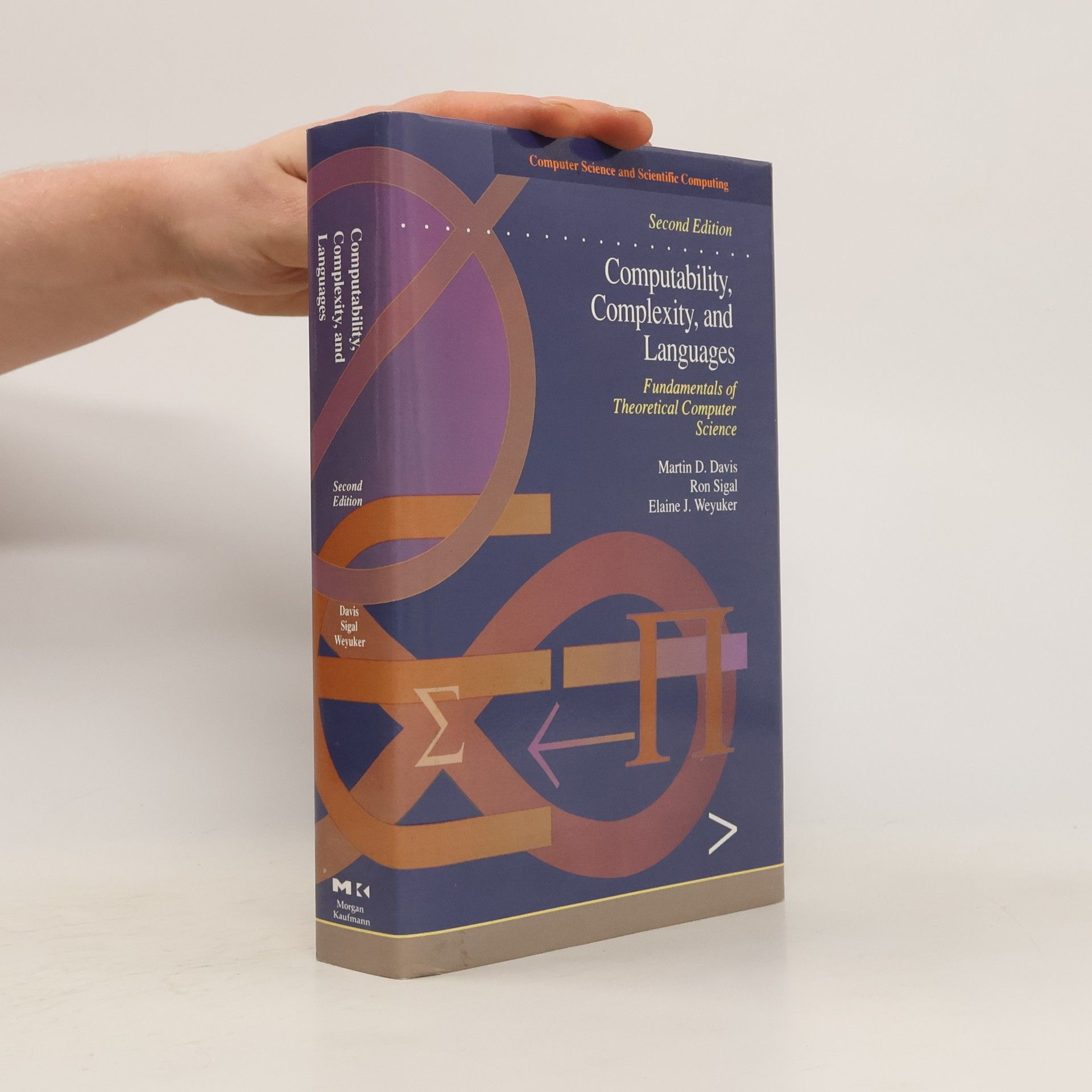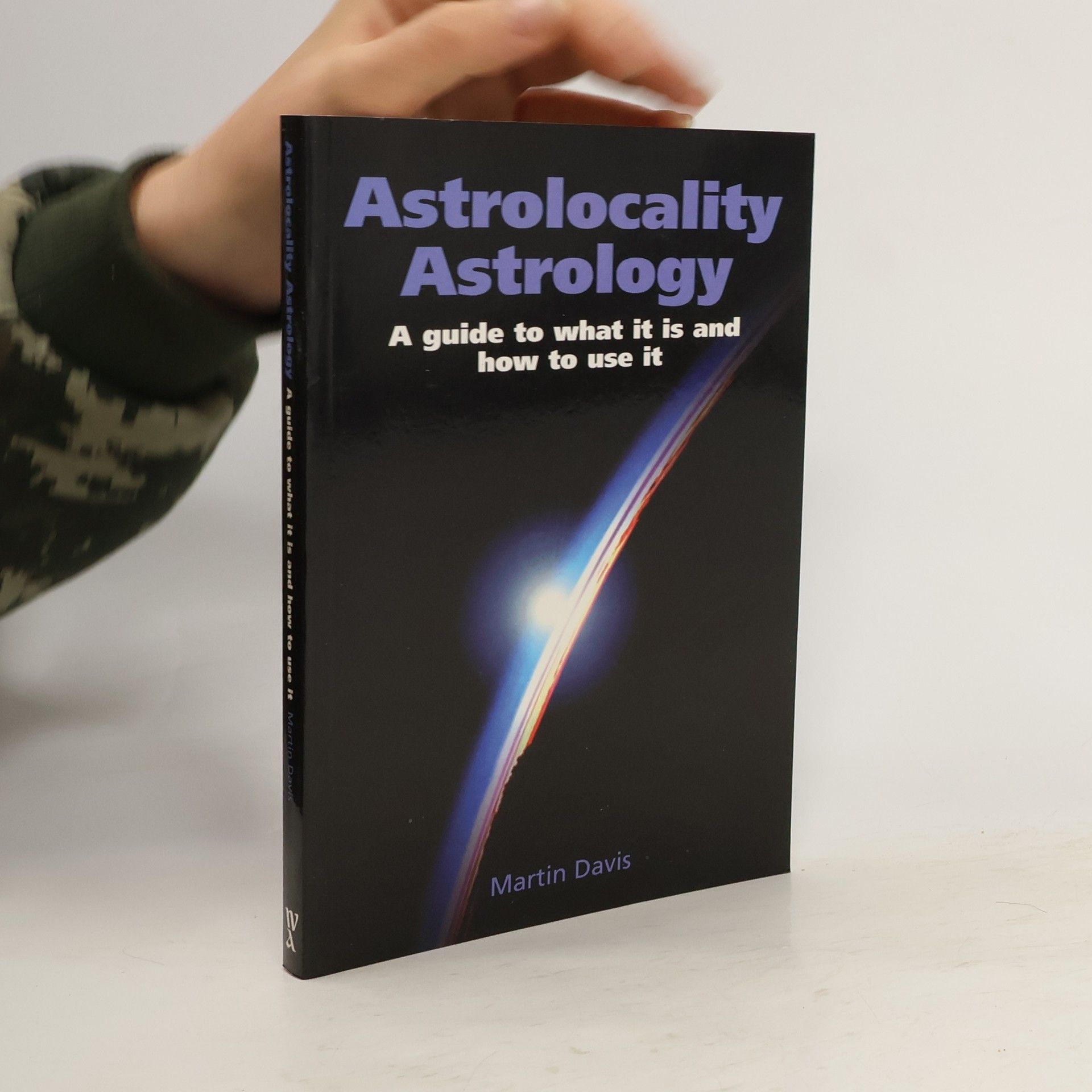This guide is suitable for practising astrologers, from beginner to expert. It intoduces readers to the concepts of local space and astrocartography, taking them to a level of understanding that will allow them to apply these techniques independently.
Martin Davis Livres
Cet auteur n'est pas une figure littéraire.






A follow up on The Hogan Mystique, this book should be a best seller and a must for every serious golfer.
Computability, Complexity, and Languages
Fundamentals of Theoretical Computer Science
This book is a rigorous but readable introduction to some of the central topics in theoretical computer science. The main subjects are computability theory, formal languages, logic and automated deduction, computational complexity (including NP-completeness), and programming language semantics.
Engines of Logic
- 272pages
- 10 heures de lecture
A pioneer in computer development chronicles the history of the machine, and the software that makes it tick, elucidating the core principles driving every calculation, stored record, and mouse click. Originally published as The Universal Computer. Reprint.
A Cartographic Analysis of Soviet Military City Plans
- 224pages
- 8 heures de lecture
The book explores over 2,000 large-scale city plans secretly created by the Soviet Military Topographic Directorate from WWII until 1991, highlighting their historical significance and detailed content. It employs a poststructuralist perspective to analyze Soviet map symbology at specific scales and compares it with OpenStreetMap, suggesting these maps can enhance modern mapping initiatives, including humanitarian efforts. The enduring relevance of Soviet military maps is emphasized, showcasing their potential to address contemporary challenges in cartography.
At fifteen, Trixie Treat becomes aware of her privilege, living in a big house, attending a posh school, and having a nice family. As she navigates her teenage years, Trixie's journey explores themes of self-awareness, social dynamics, and the complexities of growing up in a comfortable environment. Her reflections challenge her understanding of wealth and happiness, prompting her to consider what truly matters in life beyond material possessions.